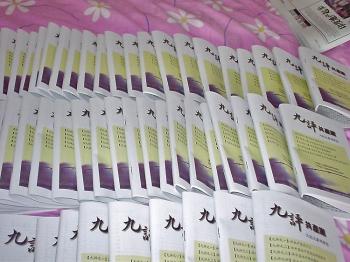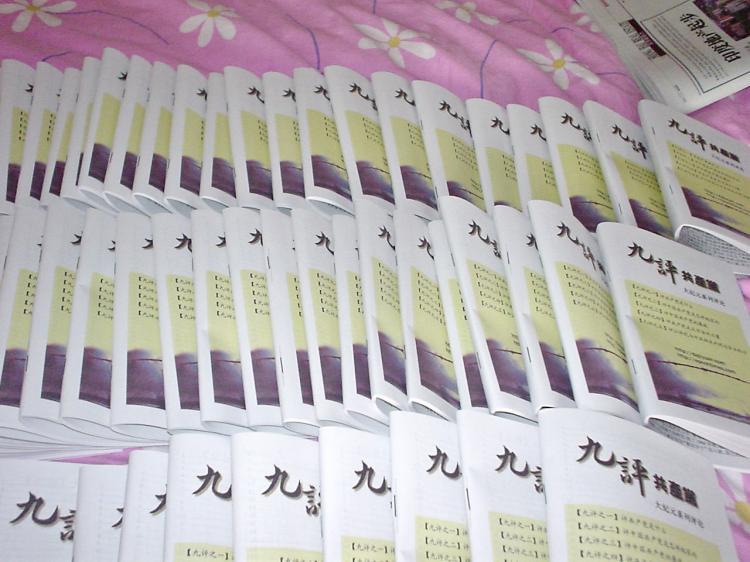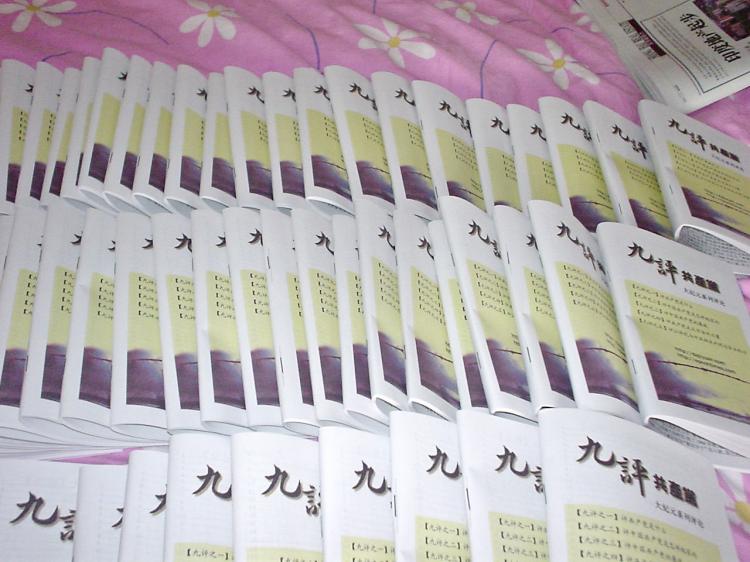Underground Print Shops Deliver Truth to China’s Masses
For a decade in China hundreds of thousands of ordinary citizens, undaunted by the possibility of arrest and torture, have turned their homes into bases for what Chinese authorities regard as “reactionary propaganda,” and what everyone else regards as simple truths about the right to faith and freedom.

PLAIN TALK: Dozens of copies of the 'Nine Commentaries on the Communist Party,' produced by a materials site in Shijiazhuang, China, are arrayed on a bed. They will be slipped into mailboxes in the dead of night by Falun Gong practitioners. The Epoch Times
|Updated:
Matthew Robertson is the former China news editor for The Epoch Times. He was previously a reporter for the newspaper in Washington, D.C. In 2013 he was awarded the Society of Professional Journalists’ Sigma Delta Chi award for coverage of the Chinese regime's forced organ harvesting of prisoners of conscience.
Author’s Selected Articles






